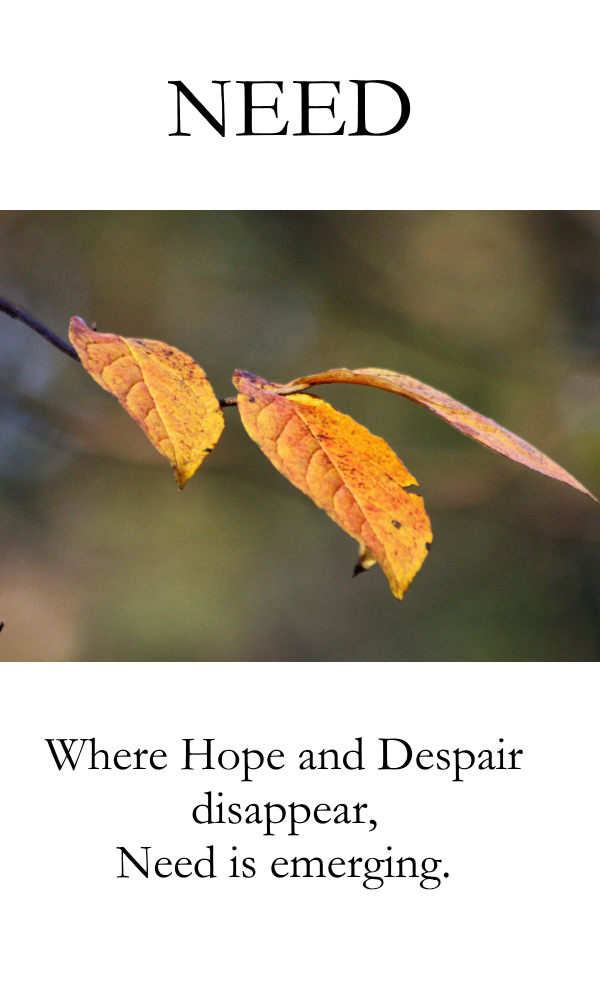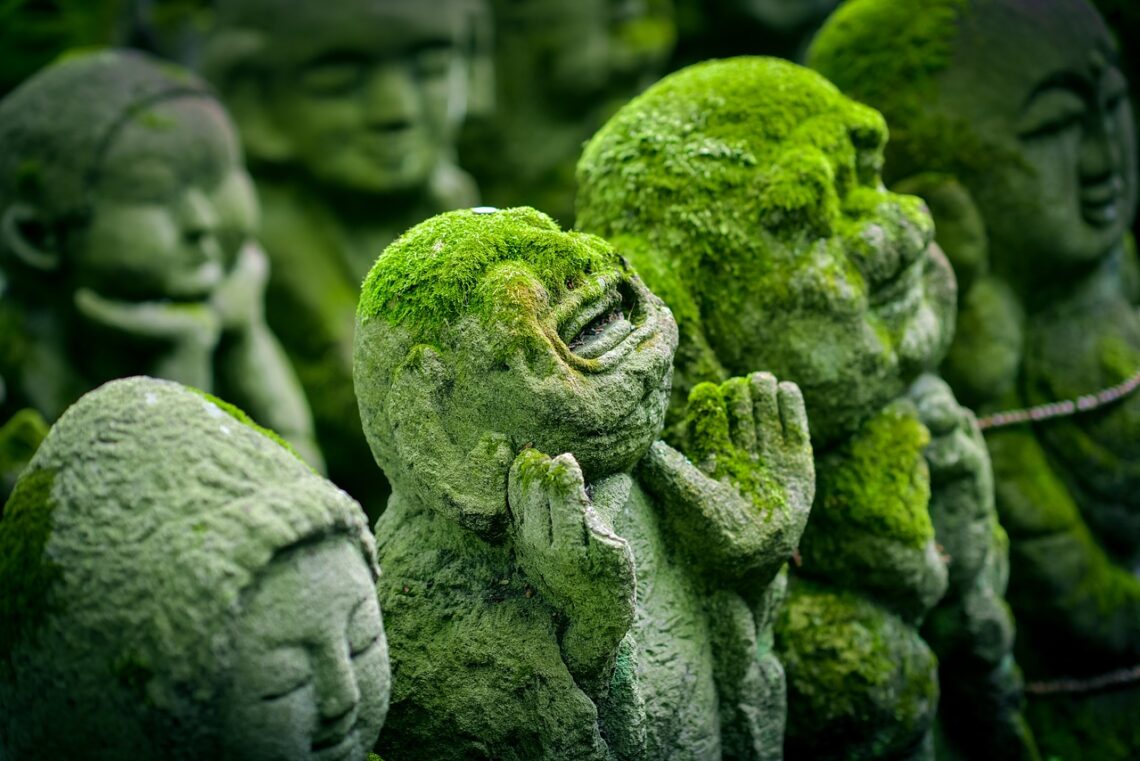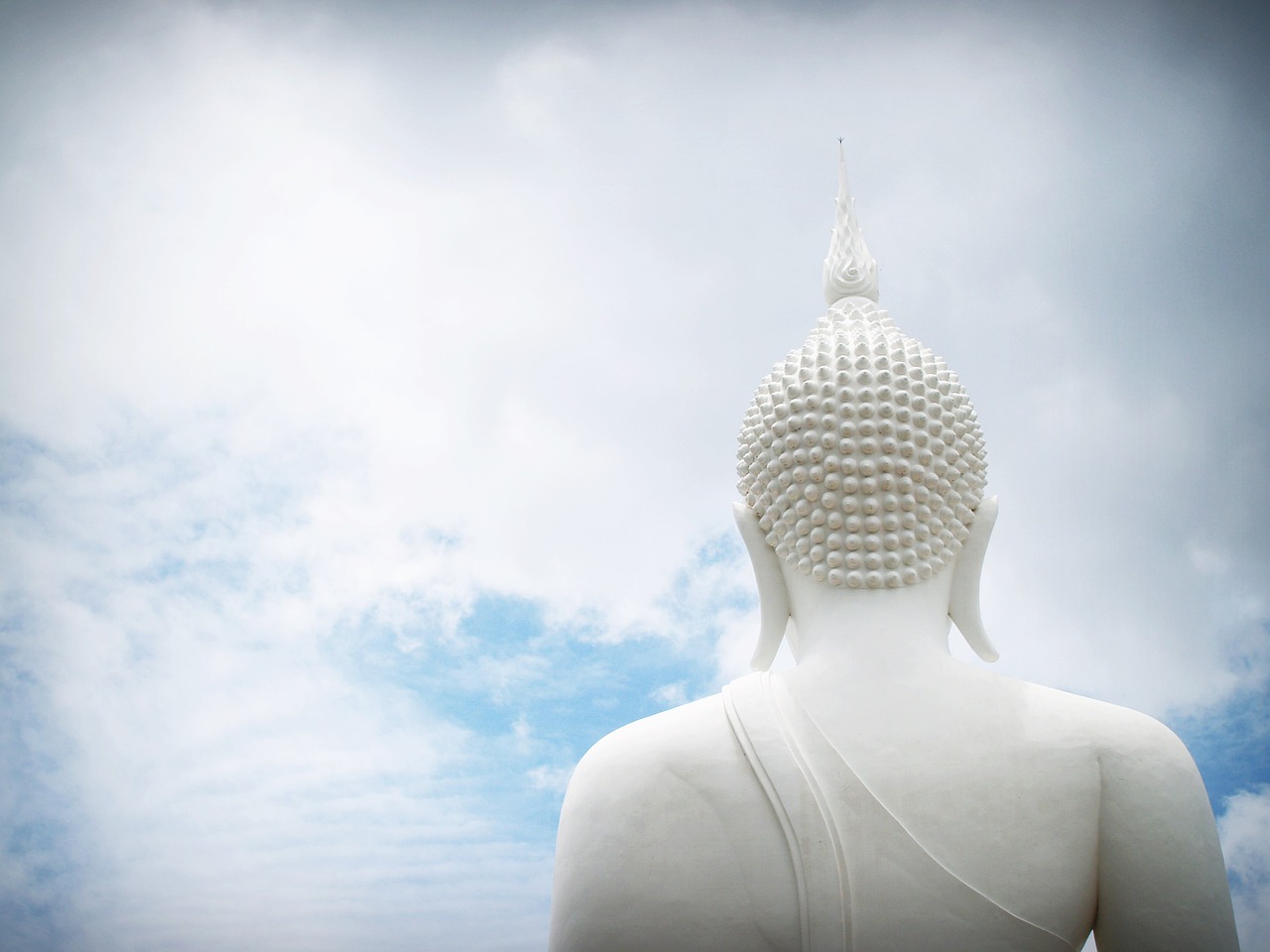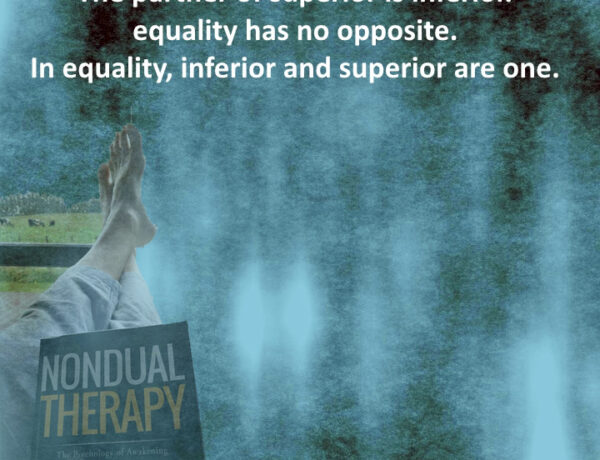The partner of despair is hope. Need has no opposite. In need, hope and despair are one.
Hope
In some ways, to live in hope is to deny the intelligence of life. Although hope is prized as a virtue, it denies the present moment by seeking completion in the future.
While there can be a healthy and expansive flow generated by an optimistic outlook, the more energy reaches forward, the less it can relax back into itself, into the pure need out of which hope arises. The more the solution is projected into the future, the less the conscious penetration into the contraction. The resonance of the core of the contraction will be one of need, and we cannot hear it until we first allow the suffering within it. In this, hope can push healing away. In the first place, it defers the healing effect of conscious-awareness.
Hope is often born out of a refusal to allow despair. This contraction from despair is born out of a general denial of suffering and a rejection of the painful aspects of being in form. The psychology of hope can become a liturgy that keeps us enslaved to the concept of future redemption through outer authorities. Redemption depends on condemnation, but also affirms it. What can be redeemed today can be condemned again tomorrow.
Hope tends to lack overview, perspective and unity with the whole, and in this way, it can be a last pitch of selfishness and illusion. Often, the chief hope is for the Separate Self to be somehow sustained or revitalized. Denying the suffering that has come forward out of the deeper needs within the personality, hope seeks to bypass painful experience in a way that the personality is preserved and empowered. Where hope has become a compulsive defense of form, the deeper need is often to release structures of the psyche that no longer serve the whole. We hope for restoration, when the need could be to expand beyond the limits of who we thought we were, what we think we are and what we hope to become.
At the same time, hope, in the form of prayer that calls for the unconditional support of a higher power, or for the kindness of other humans, does reach beyond the borders of the Separate Self. So, it’s important to check in on how the client is experiencing hope – what it means for them. Hope that ‘all will be well’ is unconditional and can merge with unconditional trust in a source beyond the Separate Self. This is quite a different movement from hope for a personal outcome that averts individual suffering. The more expansive form of hope will not be moving in denial of despair but will be attuned to it. Indeed, its depth and authenticity will depend on that receptivity.
The paradox is that the more we allow despair, the more unconditional our opening for support from the outside becomes. If we hope for an outcome, we are still trying to command the conditions of form. When hope arises out of the core of despair in naturalness, it will articulate precisely the curvatures of that despair, and in this will open the core of need. Hope as a denial of despair contracts us. Hope as a sharing of the depth of despair with the wider universe creates a resonance that is always answered in some way.
Despair
When experience is hijacked by the agenda to avoid despair, then despair can become the subtle backdrop to all experience. In the dimension of the unconditionally condemned, existential despair can feel like the core of all experience. Indeed, this bottomless pit of despair is paradoxically a floor on which whole aspects of personality are built.
Through layers of personality and Ego, we can distract, cover-up, and divert our consciousness from this feeling of despair – for a while. Yet it is always already here, deep within our inherited conditioning: we are condemned just by being born; punishable for breathing air; forever failing in some cosmic test which constantly switches parameters. We are insufficient, never good enough, unworthy.
Where many in the Nondual community will talk about universal presence, or the pure, undivided awareness that is the ground of all being, not many will talk about universal absence. Absence is denied. The argument is that we must first be present, to be aware of absence, therefore absence is illusory. Yet the experience of absence which is part of the expansive feeling of despair can feel more cuttingly truthful than the concept of presence, filling the horizons of our awareness with existential lack. This has an honesty about it that can purify the illusions. In a way, we are deeply disillusioned, which isn’t conventionally seen as a spiritual process. Naked, unpeeled and irrefutable, despair has a cutting edge that sees through form, including the varying vibrations of awareness. Yet rather than being untinctured in the manner of pure emptiness, despair is peppered with the belly of our worst contractions. We can feel as if we are in a universal ocean of betrayal or abandonment. It can feel like eternal condemnation. Awareness appears as bereft of any purpose, belief, value or meaning.
It is not the absence of hope that opens despair, but a deeper sentient disconnection from universal need. This kind of despair is exposed when we fall through the web of personal strivings, agendas and hopes. We fall through the experiential veils into the unconditional experience of emptiness suffused with the atmosphere of failure.
This despair is without context, seeming to be ubiquitous, formless and absolute. The surviving parameter in the experience of existential despair is the belief in the Separate Self. Even this boundless despair is still conceived as separate from the suffering of the whole. It is a private suffering but robbed of the comfort zone of known patterns. It can feel like absolute condemnation of the individual: ‘I’ am the one in the Dark Night of the Soul, forever separate from God, the universe, other forms of life, and the ungraspable source of whoever ‘I’ am. Even the ‘I’ seems to be failing and falling through the helpless depths of the pre-conscious.
Our ability to relax more deeply into despair can be at first limited. We grasp, distract, change the subject, or create an urgent, momentously important project. We offer hope to others, where we refuse the despair within ourselves. Yet when we can allow the collapse into the experiential veils of despair, we will fall beyond and beneath despair and crack the fundamental illusions within the dualities of being and non-being; and of existence and non-existence.
The despair in us becomes inseparable from the despair of the whole. The suffering of the whole becomes inseparable from the need of the whole.

Need – Nondual Quality
In Nondual Therapy, there is a differentiation between wants and needs. When we use the word ‘want’, we are referring to desire, which tends to involve fast gratification. For example, a recovering alcoholic might want a shot of gin, but it’s not what she needs. Someone suffering rejection might want acceptance, but what he needs could well be to move deeper into the experience of rejection, and to find freedom within it.
Colleagues who have contributed to the evolution of Nondual Therapy have used this differentiation to bring insight into the nature of contraction. Contractions are alive. They are sub-forms seeking resolution within duality, to return to the flow of the whole. The origin of each contraction is protective. That is, contractions are naturally formed and liberated through the intelligence of need.
In Nondual Therapy, we hold space in awareness for the contraction, to allow the continued unfolding of need. When the short-term need for protection is gone, there is the possibility of rebalancing and realizing duality and reuniting with the whole. When the mind can express the Nondual Quality of curiosity, then the question can be asked: what is needed here? When we ask this question to a physical cramping in a body, a story can unfold of the body’s own, intelligent prescription. When we ask it to an emotional contraction, the process is the same.
Yet at first, contraction will appear as an enemy and our first agenda will be to ‘get rid’ of it in some way. This notion of ‘getting rid of’ infects the whole healing process and sits comfortably with misconceptions that dictate separation from the whole and that negation is possible. Yet the trashing of contractions is inherently flawed, as they are made with the precise ingredients needed to manifest Nondual Qualities through the human dimension.
Take a contraction around grief, for example. To get rid of the grief would be to also get rid of the joy of connection on which the grief is based. Who would want to be free of contraction with a method that aims to existentially eliminate the one thread connecting us to the beloved that has passed away? That essential joy is embedded in the grief: indeed, the grief is made of it. The ’wanting’ to be done with grief and to pick up life again might, however, be the first presentation of the contraction. It needs to be heard. The second layer is to ask what the contraction needs. Needing answers through the language of feeling. It can be unhooked from mental agenda. At first, the utterance of need might be a conceptual leap. In the case of grief, it could be: “I need peace”. The art is to continue to inquire: if you have that, how will you feel? In showing how the feeling would be, the contraction itself supplies the precise elixir of need. Perhaps the feeling brought forward with the infusion of peace is a need to reunite with the living joy in the connection with the Beloved, outside of time and space.
Whereas what we want tends to be based on agenda and the conditions that appear in waking consciousness, what we need is more tactile, embodied, somatic and resonant. In this, the language of need has the power to uproot many contractions at once by removing certain bottlenecks of energetic flow in the psyche.
Contractions around hope and despair are formed at the edges of the psyche, a moment before reunion with need. In this Dark Night of the Soul, through which structures of Ego, personality and ancestry can break and reform through choice-less rejuvenation, the strongest guide is universal need. The deeper need, whether it is experiential or connected with service to the whole, always reduces the suffering of the Separate Self.
Do not gamble your soul on imaginations of what tomorrow could bring, for tomorrow is no more than the yearnings of today. Do not murder the moment just because that which you are not has fallen away. Even when the world undresses your worst fears, know that the inner world is more powerful than the wildest dreams.
So ask these worlds, what is needed? What is needed for the whole? What is the need in the next small step, the next breath of air, the next touch of life? Listen to the needs of the moment and rest in the unfolding of eternity.
Here, I am always, already needed
[Nondual Affirmation]
“Many people are alive but don’t touch the miracle of being alive.”
Thich Nhat Hanh




